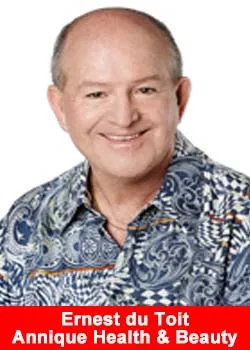Pyramid Schemes Masquerade As Direct Sellers In S Africa

There is a thin line, nowadays, between network marketing companies, or multi-level marketing companies, and pyramid schemes.
Particularly where the former has a business model that involves attracting sales agents by rewarding them for selling products to their network of friends and family, and setting up teams of other people – who also want to start their own business selling the product – and getting a percentage of their sales revenue.
People end up receiving solicitations from their friends or family to take advantage of a ‘unique opportunity’, with promises of financial independence and the allure of a lifestyle that comes with ‘being your own boss’.
“I really believe that, as an industry, it makes a difference in the lives of people that have few opportunities,” says Ernest du Toit, chairperson of the Direct Selling Association of South Africa (DSASA).“For people who have no education and little capital to start a business of their own, it allows them to start earning a passive income, which can grow as they put more time and effort into it. [Compared to starting a business], it takes the risk out of the equation and they can work flexible hours.”
But unlike legitimate network marketing companies, which include the likes of Avon, Herbalife and Amway, others are dangerously similar to pyramid schemes. Du Toit says there are about 140 million people involved in direct selling around the world. While, according to the World Federation of Direct Selling Associations, more than 200 million people will join a direct selling company over the next decade.
“The industry also makes it easy for unethical businesses, posing as direct selling companies, to take advantage of desperate and gullible people.”
NCC investigates
The National Consumer Commission (NCC) is currently conducting a preliminary investigation into nine suspected pyramid schemes including World Ventures, Kipi (also known as My deposit 247), Make Believe, NMT Investments, Instant Wealth Club, MMM scheme, DIPESA, Sikhese and the Wealth Creation Club, to establish whether the schemes are contravening the provisions of the Consumer Protection Act and its regulations in any way.
Says NCC spokesperson Trevor Hattingh: “The NCC was alerted to suspicious activities on certain bank accounts that are linked to the aforementioned companies or schemes by the South African Reserve Bank (Sarb), as well as the Financial Services Board (FSB). These complaints were escalated for investigation. The suspicious banking activities are similar to what would ordinarily be found in a pyramid scheme”.
According to Section 43 (4) (a) of the Consumer Protection Act, a pyramid scheme is an arrangement, agreement, practice or scheme where, participants in the scheme receive compensation derived primarily from their respective recruitment of other persons as participants, rather than from the sale of any goods or services.
The FSB says it is not investigating any of the aforementioned companies.
Thin line
Pyramid Scheme Alert (PSA), an international association dedicated to studying and exposing pyramid schemes, says there’s a 90-99% failure rate for people joining some of these companies. The thin line that disguises the pyramid-scheme features of these companies is that they have a retail product and claim not to pay people for recruiting. But it is very difficult for salespeople to turn a sustainable profit unless they can find other people who would want to take advantage of the ‘opportunity’ to join and sell through them.
“The average number of retail customers per recruit is far too small to support a retail business. The cost of selling is too high. The time required makes it not worth the effort,” reads a PSA report, on how to tell the difference between pyramid schemes and legitimate opportunities.“The math in the recruiting system dooms the vast majority – as many as 99% – to financial losses. This is because more than 90% will always be in the bottom ranks where there are not enough recruits below to provide an income,” the report reads.
Du Toit says the first thing to look out for is whether the company is a part of the DSASA. The association vets a business and makes sure its practices fall within the ambit of a direct selling company. None of the companies under investigation by the NCC are on the DSASA members list, which you can find here.
“We take care of the members and consumers, the code of conduct, and are the guardians of ethics in the industry. If someone joins a company that is part of our membership they are at least protected.”
Secondly, selling a product must be a fundamental feature of the opportunity. If the point of departure is to recruit more people, you’re in trouble, says Du Toit.
Another thing to look out for is with regard to money paid upfront in order to receive greater benefits.
Says Du Toit: “It’s called front-end loading. [You] mustn’t be tempted into making huge investments and be made promises of income based on these. People should be weary of unreasonable claims made on what the income potential of a member will be. If they have people that are earning R100 000 a month, they must be able to substantiate those returns”.
At the end of the day, the onus is on the people joining to do their due diligence by looking at a company’s track record to avoid being scammed, as anyone who is considering starting their own business would do.